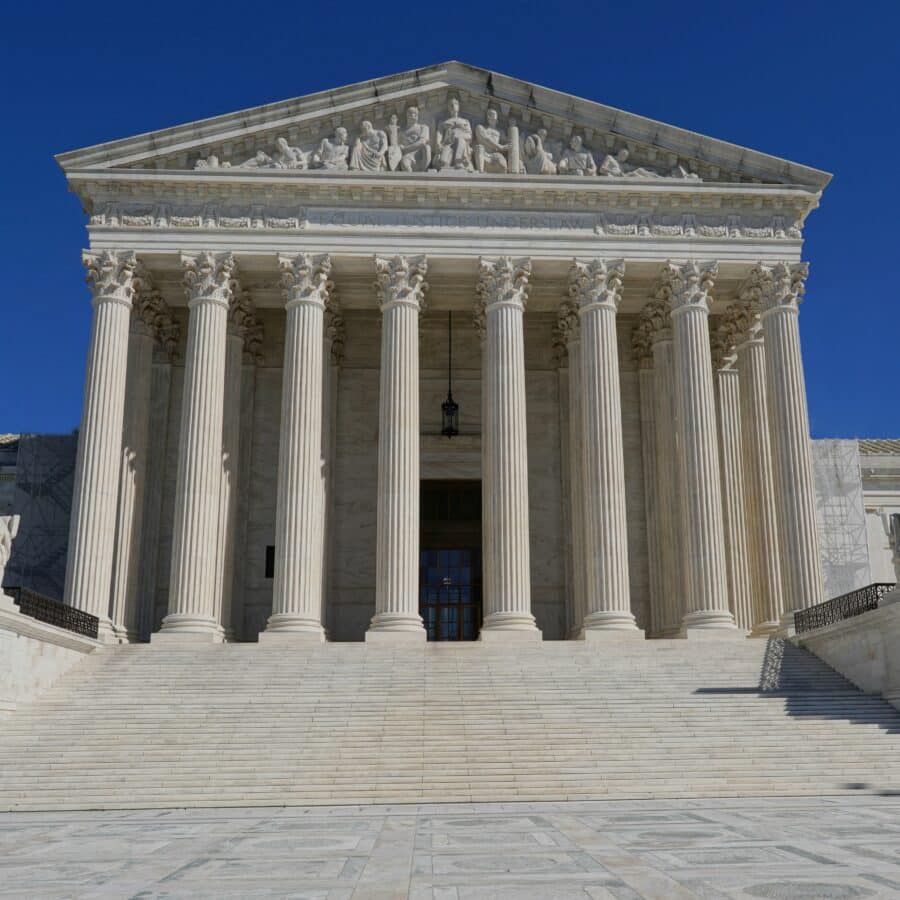The civil discovery process is one of the fundamental pillars of the modern American justice system. What makes the current process so great is the underlying goal of ensuring that each litigant has the ability to acquire the relevant evidence to prove his or her case. This is accomplished through the liberal standards which currently guide the process. Of course, this was not always the case. The old rules of procedure afforded a far less liberal standard of discovery and, as a result, “[i]nquiry into the issues and the facts before trial was narrowly confined and was often cumbersome in method.”1 In recognition of these problems, the United States Supreme Court heralded the modern age of liberal discovery by proclaiming that: “civil trials in the federal courts no longer need be carried on in the dark. The way is now clear, consistent with recognized privileges, for the parties to obtain the fullest possible knowledge of the issues and facts before trial.”2
Sadly, we may once again find ourselves in a position where trials are carried on in the dark, or even not at all, if the proposed amendments to the Federal Rules of Civil Procedure published by the Judicial Conference Advisory Committee on Civil Rules last summer are adopted. These changes seek to limit, among other things:
• The scope of discovery by mandating that the Judge act as a “gatekeeper” by conducting a Daubert-esqe “proportionality” mini-trial for each and every discovery request;
• The amount of depositions a party may take;
• The amount of interrogatories a party may send;
• The amount of requests for admissions a party may send; and
• The Judge’s discretion in entering sanctions against a party who disposes of relevant evidence.
The public may comment on the proposed changes until Tuesday, February 18, 2014 at 11:59 PM. Comments should be submitted electronically through the regulations.gov website. The Advisory Committee will decide whether or not to submit the proposed changes to the Committee on Rules of Practice and Procedure after the comment period closes. Should the Advisory Committee decide to submit them, the proposed changes would then become effective on December 1, 2015 if approved by the Committee on Rules of Practice and Procedure, the Judicial Conference, the Supreme Court, and Congress.
It is vitally important that every attorney who represents consumers submit comments on the proposed changes. As a whole, the proposed changes will operate together to foreclose many plaintiffs’ right to a remedy. This is particularly true in products liability and other complex cases where litigation expenses already greatly exceed many other types of lawsuits. The net effect of these rules will be to shift even more legal burdens and costs onto plaintiffs who are already severely disadvantaged by litigating against wealthy defendants who have almost all of the relevant evidence privately hidden away. In order to better state the negative impact the proposed rule changes would have, the remainder of this post will analyze the most harmful changes on an individual basis.
The Proposed Changes to the Scope of Discovery
The defendant already starts out holding almost all of the cards in the vast majority of products liability lawsuits. The information necessary to establish that a design was faulty is often buried within thousands of pages of engineering blueprints, correspondence, and other similar documents, and no amount of independent investigation can uncover such privately held information. As a result, the proposed change as to the scope of discovery will entirely eviscerate the plaintiff’s chances of overcoming the defendant’s initial advantage in many, if not the majority, of products liability cases.
The problem begins with the proposed rule’s creation of a brand new burden which requires the proponent to establish the “proportionality” of the requested discovery. This provision, which apparently requires the court to act as a gatekeeper to discovery, will only lead to even more discovery disputes and protracted mini-hearings as we have seen in the wake of Daubert. Even worse: plaintiffs are simply not in a position to meet this burden in many cases. How can the plaintiff hope to prove the “likely benefit” of obtaining discovery to documents which the defendant has kept sealed away? Only the defendant knows what that “likely benefit” will be in most cases since it is usually only the defendant who has access to the requested items.
The proposed changes to the scope of discovery are not only harmful to plaintiffs, they are entirely unnecessary. Defendants are currently permitted to assert whatever objections and privileges they believe apply to any discovery request made by the plaintiff. This is the more logical and efficient process because it is only the defendant who knows what responsive items are in its possession. Requiring the plaintiff and the court to speculate about what those items may be in a Daubert-esque mini-hearing for each and every discovery request is a colossal waste of the parties’ and the Court’s precious time and resources.
The Proposed Changes Limiting the Number of Depositions
The plaintiff is required to take more than five (5) depositions in almost every single products liability case. Fact witnesses in these cases include the people who have knowledge of the product spanning back to the initial design process up through its manufacture and sale; the people with knowledge as to the product’s installation and maintenance; and, finally, the people who actually witnessed the incident occur. Moreover, the defendant often retains many experts covering a broad array of topics which include industry standards, biomechanics, metallurgy, and whatever else may be relevant to the lawsuit.
As a result of the foregoing, the proposed changes limiting the number of depositions will only serve to create inefficiencies and prejudice the plaintiffs in products liability lawsuits. It makes absolutely no sense to create a rule that requires litigants in a particular type of lawsuit to seek leave to conduct additional depositions in almost every single case. Seeking leave should be the exception, not the rule. The proposed rule flies in the face of this common sense notion and can only serve to benefit defendants seeking to delay litigation.
The Proposed Changes Limiting the Amount of Interrogatories
Interrogatories are a vital aspect of conducting an efficient and effective products liability lawsuit. By preparing detailed interrogatories, plaintiffs can often reduce the amount of time it takes to conduct a deposition because much of the information will have already been provided. Even the current allotment of interrogatories is often not enough to cover the necessary ground; the proposed rule will simply result in frequent disputes as to whether the plaintiff should be entitled to more. This, in turn, will result in wasted judicial resources.
Moreover, if the plaintiff is unable to obtain additional interrogatories, then he or she will have to spend time during depositions covering topics that could instead be covered by written discovery. This will result in either greater inconvenience and expense for the deponent, if the plaintiff is granted sufficient time to cover this ground, or injustice to the plaintiff if he or she is not able to obtain the additional time required.
The Proposed Changes Limiting the Amount of Requests for Admissions
Requests for admissions serve to limit the issues which need to be resolved by the trier of fact in similar fashion to stipulations. In this way, requests for admissions serve to make litigation more efficient. The proposed rule simply provides yet another potential roadblock for the defendant to throw up at the cost of judicial economy.
The Proposed Rule Changes for Failure to Cooperate in Discovery
Sanctions play a valuable and necessary role in keeping litigants honest in a system where defendants often have exclusive possession of almost all of the relevant evidence. Of course, even under the current rules, sanctions remain the exception rather than the norm. The expense and burden of proving that a missing piece of evidence did indeed exist is already great in and of itself; the rare orders awarding sanctions simply help to offset those costs after the fact.
By adding new requirements for the imposition of sanctions for destroying evidence, the proposed rule change will allow defendants to avoid reprise even after the plaintiff has met the already onerous burden of proving that sanctions are appropriate under the current rule. As such, the change is unnecessary and would be greatly detrimental to our civil justice system.
Conclusion
The proposed rule changes would cumulatively operate to deny justice to many consumers in products liability and other complex cases. The reality is that the defendant retains exclusive possession of almost all of the evidence in the vast majority of these cases; the proposed rules limiting the scope of discovery could make it impossible for many catastrophically injured consumers to overcome this informational advantage. Moreover, the proposed changes would cause judicial resources to be squandered because they would result in a greater frequency of discovery disputes ranging from Daubert-esque “proportionality” mini-hearings through fights over granting the plaintiff the right to additional depositions, interrogatories, or requests for admissions. Finally, the proposed changes would serve to insulate defendants who destroy relevant evidence from sanctions even in those rare instances where the plaintiff could show that sanctions would be appropriate under the currently applicable standards.
[1] Hickman v. Taylor, 329 U.S. 495, 501 (1947).
[2] Id.


